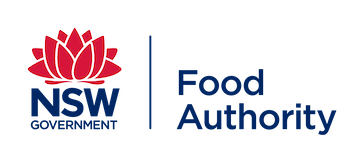Food Regulation Partnership
The NSW Food Authority works in conjunction with 128 NSW councils, the Office of Environment and Heritage (in respect of Kosciusko National Park), Lord Howe Island Board (in respect of Lord Howe Island) and Food Authority (in respect of Sydney Harbour Federation Trust and the unincorporated far west) to ensure the food sold in NSW is safe for human consumption and correctly labelled.
The Food Regulation Partnership:
- clarifies the responsibilities of local government in relation to food regulation
- improves food safety coordination between councils and the Food Authority in several areas, including food inspections
- enables quicker responses to food emergencies and food recalls
- enables all councils to recover the costs of food regulation enforcement
- provides a food regulation forum for consultation with councils and the retail food sector.
The Food Regulation Partnership model includes a comprehensive program to support and assist council roles in food regulation:
- facilitating 16 regional food surveillance network groups
- convening a Statewide Regulatory Liaison Group
- providing technical advice and guidelines.
Activity report
Under the Food Regulation Partnership all enforcement agencies are required to annually report on their food regulatory activities.
The purpose of the activity report is for the Food Authority to capture data collected by these agencies from across the state into a central document to monitor and assess trends in food surveillance work.
In tracking the food safety surveillance activity of local councils, the Food Authority can identify trends and plan strategies and activities to better improve food safety work and protect the health of NSW consumers.
The Food Authority prepares a Summary Report on the food surveillance activities data submitted by all enforcement agencies. These are listed below.
- Summary Report, 2021 - 2022
- Summary Report, 2020 - 2021
- Summary Report, 2019 - 2020
- Summary Report, 2018 - 2019
- Summary Report, 2017 - 2018
- Summary Report, 2016 - 2017
- Summary Report, 2015 - 2016
- Summary Report, 2014 - 2015
- Summary Report, 2013 - 2014
There are a variety of tools available to agencies that enable them to enforce food safety compliance in NSW. These tools can be applied using a graduated response that may increase in severity depending upon the breach.
The report does not capture individual businesses who do not comply with food safety requirements, which is the function of the NSW Food Authority’s Name and Shame register. The Name and Shame register lists businesses that have breached NSW food safety laws and is intended to give consumers more information to make decisions about where they eat or buy food.
